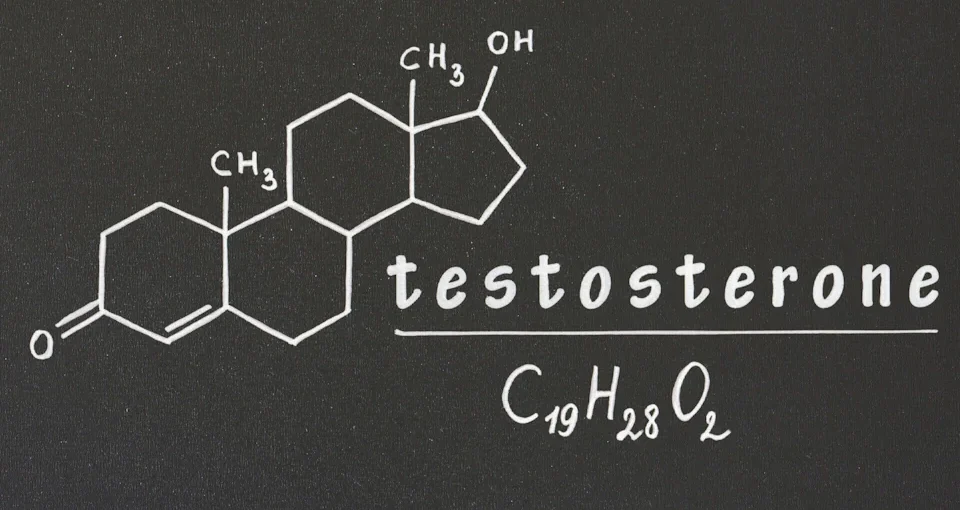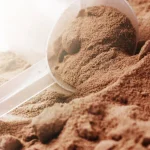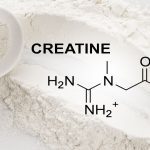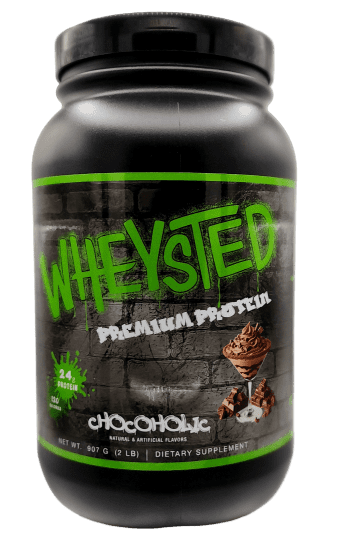Testosterone, the hormone often associated with male development and vitality, has been steadily declining in the United States over the past 40 years. Researchers have observed that men today have significantly lower testosterone levels than men of the same age a generation or two ago. This trend is beyond what would be expected from aging alone, pointing to broader changes in health and environment. In this article, we’ll summarize current research on U.S. testosterone trends, explore possible causes of testosterone deficiency (from lifestyle to environmental factors), and share evidence-based tips on how to naturally increase testosterone levels. The goal is an accessible, engaging look at a serious health trend – grounded in scientific evidence and current research.
Testosterone Trends in the U.S.: A Steady Decline
Multiple studies and surveys have confirmed a long-term decline in testosterone levels among American men. For example, the Massachusetts Male Aging Study – a landmark research project – found that average testosterone levels in men have been dropping by about 1% per year since the 1980s (https://calfkicker.com/new-studies-show-testosterone-levels-in-men-have-dropped-1-every-year-since-the-1970s/). In practical terms, a 60-year-old man in 2004 had significantly lower testosterone than a 60-year-old man in 1987, even when both had similar health and lifestyle profiles.
What’s even more alarming is that the decline isn’t just affecting older men – it’s showing up in younger men too. National health surveys indicate that men aged 15–39 saw a roughly 20%–25% drop in total testosterone levels between 1999 and 2016 (https://www.urologytimes.com/view/testosterone-levels-show-steady-decrease-among-young-us-men). During that period, average testosterone for this group fell from about 605 ng/dL in 1999–2000 to around 451 ng/dL by 2015–2016 (https://www.renalandurologynews.com/news/testosterone-levels-declining-young-males/). Notably, this decline was seen even in men with normal body weight, suggesting the trend isn’t only due to obesity. Researchers describe these changes as “alarming” from a public health perspective, since testosterone is crucial for things like muscle mass, bone density, red blood cell production, mood, and sexual health.
To be clear, testosterone naturally declines as individuals age – roughly by about 1% per year after age 30. But these studies show an additional drop in levels that cannot be explained by aging alone. In other words, a 30-year-old man today has lower testosterone on average than a 30-year-old man in the 1980s had. While average levels in the population are not universally in the “low testosterone” clinical range yet, they’re collectively lower than they used to be and inching downward with each generation (https://health.clevelandclinic.org/declining-testosterone-levels). This has prompted scientists to investigate the causes behind this population-level decline.
Why Are Testosterone Levels Falling? Possible Causes
The decline in testosterone is likely due to a combination of factors. Experts believe it’s not one single cause, but rather a mix of environmental changes, lifestyle shifts, and health trends that have changed over the past few decades. Here are some leading factors that current research points to:
-
- Natural aging vs. generational change: It’s normal for testosterone to decrease somewhat with age. However, studies show a generational drop beyond normal aging. This means men are starting with lower testosterone levels than their fathers did at the same age (https://www.carieboyd.com/news/why-are-testosterone-levels-decreasing-in-men/). Researchers suspect that factors in our modern environment and lifestyle are suppressing testosterone across all age groups.
-
- Rising obesity and poor diet: Perhaps the biggest contributor identified is the increase in obesity rates. Excess body fat (especially around the abdomen) can lower testosterone because fat tissue converts testosterone to estrogen and influences hormone metabolism. The period of declining testosterone coincides with Americans getting heavier on average, and studies confirm that higher Body Mass Index (BMI) is associated with lower T levels (https://health.clevelandclinic.org/declining-testosterone-levels). Diet plays a role as well: diets high in processed foods and sugars may lead to weight gain and nutrient deficiencies that negatively impact hormone production. Conversely, a nutritious diet supports healthy testosterone – for instance, getting enough protein, zinc, vitamin D, and healthy fats (from foods like fish, nuts, olive oil) is beneficial (https://www.health.harvard.edu/mens-health/lifestyle-strategies-to-help-prevent-natural-age-related-decline-in-testosterone).
-
- Physical inactivity: Sedentary lifestyles have become more common in the last few decades (think desk jobs, more screen time, less manual labor). Less exercise is bad news for testosterone. Regular physical activity – especially strength training and high-intensity exercise – is known to boost testosterone levels and improve overall hormonal balance. Men who don’t exercise much are missing out on this natural testosterone boost (https://health.clevelandclinic.org/declining-testosterone-levels). At the same time, decreased physical activity contributes to weight gain, compounding the issue. (It’s worth noting extremes like overtraining/endurance athletics can sometimes lower testosterone, but for most people the bigger issue is too little exercise, not too much.)
-
- Poor sleep patterns: Modern life has also led to reduced sleep duration and quality for many people. Sleep is when our bodies produce the most testosterone – in fact, testosterone release peaks during deep REM sleep. Chronic sleep deprivation or conditions like sleep apnea (pauses in breathing during sleep) can significantly reduce testosterone levels (https://www.health.harvard.edu/mens-health/lifestyle-strategies-to-help-prevent-natural-age-related-decline-in-testosterone). Unfortunately, compared to 40 years ago, people today often sleep less due to longer work hours, device screen time at night, and other lifestyle factors. This decline in sleep quality and quantity may be contributing to lower T.
-
- Chronic stress: Stress levels and anxiety have risen in recent decades for many demographics. When you experience chronic stress, your body elevates the hormone cortisol. High cortisol over time can suppress the body’s ability to produce testosterone. Essentially, stress biologically trades off with testosterone production. Studies note that stress and depression can disrupt the brain–testes hormonal axis and reduce T levels (https://www.health.harvard.edu/mens-health/lifestyle-strategies-to-help-prevent-natural-age-related-decline-in-testosterone). Fast-paced lifestyles, economic pressures, and constant information overload might be keeping our stress responses in overdrive, with negative effects on hormones and libido.
-
- Environmental chemicals (endocrine disruptors): A growing concern is exposure to endocrine-disrupting chemicals in our environment. These are substances that can interfere with hormones. Notable examples are phthalates (found in many plastics and personal care products), Bisphenol-A (BPA) in plastics and canned food linings, and certain pesticides. Over the last 40 years, our daily exposure to these chemicals has increased dramatically due to plastics use and industrial chemicals in water, food, and products. Research suggests this is affecting testosterone: for instance, a University of Michigan study found that adults with high phthalate exposure had significantly lower testosterone levels (up to 20–30% lower) than those with less exposure (https://news.umich.edu/reduced-testosterone-tied-to-chemical-exposure/). These chemicals can mimic or block hormones and disrupt the endocrine system. While more research is ongoing, many experts suspect that environmental toxins are a key piece of the low testosterone puzzle (https://calfkicker.com/new-studies-show-testosterone-levels-in-men-have-dropped-1-every-year-since-the-1970s/).
-
- Medical conditions and medications: Certain health conditions can also contribute to low T. Chronic illnesses such as type 2 diabetes, metabolic syndrome, liver or kidney disease, and others are linked to lower hormone levels (https://www.health.harvard.edu/mens-health/lifestyle-strategies-to-help-prevent-natural-age-related-decline-in-testosterone). The prevalence of many chronic diseases (often related to obesity and aging) has increased in the population over the last few decades, which could be dragging down average testosterone. Additionally, some common medications can reduce testosterone as a side effect – for example, long-term use of opioids for pain, certain antidepressants, or steroids like prednisone. Increased use of prescription medications in general might be indirectly influencing testosterone levels in the population. Lastly, there are specific medical causes of testosterone deficiency (such as disorders of the testicles or pituitary gland), but these are less common and haven’t changed in incidence as dramatically as the lifestyle factors above. Still, it’s important to mention that if an individual has significantly low testosterone, a physician will want to rule out any underlying medical issues.
In summary, the decline in testosterone likely results from a confluence of modern lifestyle and environmental changes – people are heavier, less active, sleeping less, under more stress, and exposed to more hormone-disrupting chemicals than decades ago. These factors collectively create a perfect storm affecting hormonal health. The next question is: given these challenges, what can one do about it?
How to Naturally Increase Testosterone Levels
The good news is that many of the factors contributing to low testosterone can be addressed through healthy lifestyle changes. While we can’t change everything in the environment, individuals can often improve their testosterone levels by improving their overall health habits. Here are evidence-backed strategies to naturally boost (or maintain) your testosterone:
-
- Maintain a healthy weight: If you’re overweight, losing excess body fat is one of the most effective natural ways to increase testosterone. Research shows that weight loss can lead to a significant rise in T levels – one study noted testosterone production can jump by as much as 30% when men shed extra pounds through diet and exercise (https://www.health.harvard.edu/mens-health/lifestyle-strategies-to-help-prevent-natural-age-related-decline-in-testosterone). Aim for a balanced, sustainable approach: reduce refined sugars and ultra-processed foods (which contribute to weight gain) and focus on whole foods like vegetables, lean proteins, fruits, and whole grains. Even a modest weight reduction can help; and if you’re currently at a healthy weight, keeping it stable will support hormonal balance.
-
- Exercise regularly (especially strength training): Physical activity is a powerful testosterone booster. Studies consistently find that men who exercise frequently have higher T levels than sedentary men. The best types of exercise for testosterone are resistance training (like weightlifting) and high-intensity interval training (HIIT). For example, compound movements such as squats, deadlifts, bench presses, and intense interval workouts can stimulate testosterone release (https://www.health.harvard.edu/mens-health/lifestyle-strategies-to-help-prevent-natural-age-related-decline-in-testosterone). Try to get a mix of strength training 2–3 times a week and some cardio or active recreation. If you’re new to exercise, start gradually and build up – even daily brisk walking is better than nothing. The key is to avoid long stretches of inactivity. (Fun fact: Just a single bout of vigorous exercise can cause a short-term boost in testosterone, but the real benefits come from consistent training habits.)
-
- Eat a testosterone-friendly diet: There’s no magic “testosterone diet,” but certain nutritional patterns support healthy hormone levels. Include plenty of protein, which helps with weight management and provides the building blocks for muscle (important since more muscle mass is associated with higher T). Don’t skimp on healthy fats – diets that are extremely low in fat may lead to lower testosterone, since fats (like omega-3s and monounsaturated fats) are involved in hormone production. Include sources like olive oil, avocados, nuts, eggs, and fatty fish. Make sure you get enough micronutrients: low levels of vitamin D and zinc, for instance, have been linked to low testosterone. Foods rich in zinc (such as oysters, shellfish, lean meats, beans) and ensuring adequate vitamin D (through sunlight or fortified foods, or a supplement if recommended by your doctor) can help. Cruciferous vegetables (broccoli, cauliflower) are also thought to support healthy testosterone by reducing excess estrogen. In short, a balanced diet with whole foods is your ally – it helps control weight and provides nutrients needed for hormone balance.
-
- Get sufficient high-quality sleep: Prioritize sleep as a serious part of your health routine. Most adults should target 7–9 hours of sleep per night. Testosterone levels naturally peak during sleep and are highest in the morning after a night of good rest. If you consistently sleep too little or have very interrupted sleep, your body produces less testosterone overall. In one study, young men who slept only 5 hours per night for a week saw a 10-15% drop in daytime testosterone compared to when they were well-rested. To improve sleep, establish a regular sleep schedule, create a dark/quiet bedroom environment, and limit screen time or heavy meals right before bed. If you suspect you have sleep apnea (snoring and frequent waking are signs), talk to a doctor – treating sleep disorders can markedly improve testosterone levels and general well-being https://health.clevelandclinic.org/declining-testosterone-levels.
-
- Manage and reduce stress: Chronic stress is an enemy of a healthy hormonal profile. Finding ways to lower your stress and anxiety levels can help increase testosterone (and improve your mood and energy in the process). Consider incorporating stress-management techniques into your daily life: regular exercise (mentioned above) is a great stress reducer, as are practices like meditation, deep breathing exercises, yoga, or even hobbies that you find relaxing. Ensure you have some downtime to unwind each day. By reducing stress, you keep cortisol levels in check – allowing your body’s natural testosterone production to run optimally without being suppressed (https://www.health.harvard.edu/mens-health/lifestyle-strategies-to-help-prevent-natural-age-related-decline-in-testosterone). Taking care of your mental health (through therapy, social support, or other means) is as important as diet and exercise when it comes to maintaining healthy testosterone levels.
-
- Limit alcohol and avoid substance abuse: Alcohol in excess is known to decrease testosterone. While an occasional drink is unlikely to cause major harm, chronic heavy drinking (and binge drinking) definitely can lower T and impair reproductive health (https://health.clevelandclinic.org/declining-testosterone-levels). Try to keep alcohol consumption moderate (the CDC recommends no more than 2 drinks per day for men, and even less is better). As for smoking, some studies have found it might temporarily raise testosterone slightly, but nicotine and smoking are overall detrimental to health and have been linked to hormonal imbalances and reduced fertility. Quitting smoking is recommended for countless reasons – if it helps your testosterone or sperm health in the long run, that’s another bonus. Also, avoid other drugs not prescribed by your doctor; anabolic steroid abuse, for example, can actually shut down your natural testosterone production. The bottom line: moderation is key with alcohol, and steering clear of tobacco and illicit drugs will support your general health and hormone levels.
-
- Reduce exposure to hormone-disrupting chemicals: While you can’t completely avoid all environmental chemicals, you can take steps to minimize your contact with known endocrine disruptors. For example, use glass or stainless steel containers for food and drinks instead of plastic (especially avoid heating food in plastic, which can leach chemicals like BPA into your food). Choose products labeled “BPA-free” and try to reduce use of plastics with recycling codes #3 and #7, which often contain phthalates or BPA. Opt for natural or phthalate-free personal care products (like shampoos, lotions, colognes) when possible. Ventilate your home when using cleaning chemicals or paints. Wash fruits and vegetables to remove pesticide residues. Individually, these may be small actions, but they can cut down your cumulative exposure to substances that might impair hormone function. Think of it as creating a more “testosterone-friendly” environment for your body.
It’s also worth mentioning that if you have symptoms of low testosterone – for example, low sex drive, extreme fatigue, difficulty building muscle, or mood changes – consult a healthcare provider. They can do a blood test to check your testosterone level and overall health. If a deficiency is found, a doctor will evaluate possible causes and treatment options. Many times, lifestyle changes are recommended as a first step. In more severe cases or specific medical conditions, medical treatments (like hormone replacement therapy) might be considered, but those come with pros and cons and should be overseen by a physician. In any case, living a healthy lifestyle will complement other treatments and is beneficial for more than just testosterone.
The Road Ahead
Testosterone levels in the U.S. have undeniably declined over the last 40 years, a trend that has researchers concerned and working to understand all the causes. It appears that modern life has created a perfect storm of factors – from poor diet and sedentary habits to stress and chemical exposures – that are collectively driving down testosterone in men (and potentially affecting women’s hormone health, too). This matters because testosterone isn’t just about machismo or gym muscles; it’s a fundamental hormone for health, influencing everything from energy and mood to heart health and fertility.
The encouraging news is that we are not powerless in the face of these changes. By focusing on the pillars of a healthy lifestyle – nutrition, exercise, sleep, and stress management – individuals can often raise their testosterone levels naturally and improve their overall well-being. These changes won’t necessarily skyrocket your testosterone into bodybuilder territory, but they can help you be at the upper end of your personal range and alleviate mild low-T symptoms. Just as importantly, these habits reduce the risk of diseases (like diabetes or heart disease) that are associated with low testosterone. Think of it this way: what’s good for your testosterone tends to be good for your health in general.
Addressing the broader environmental causes (like endocrine-disrupting chemicals) is more challenging and may require public health actions and further research. Scientists are calling for greater awareness and policies to limit harmful chemicals, as well as more studies to pinpoint all the contributors to this hormonal shift (https://calfkicker.com/new-studies-show-testosterone-levels-in-men-have-dropped-1-every-year-since-the-1970s/). In the meantime, being informed is your best defense. Simple steps – such as choosing glass over plastic, getting regular exercise, and shedding a few extra pounds – can make a meaningful difference in your testosterone level and overall quality of life.
**Sources & Further Reading:** Studies and expert sources for this article include the Journal of Clinical Endocrinology & Metabolism, findings from the National Health and Nutrition Examination Survey (NHANES), Harvard Health Publishing, Cleveland Clinic, University of Michigan School of Public Health, and others. Key references are embedded as links above so you can read more on each point of interest.







